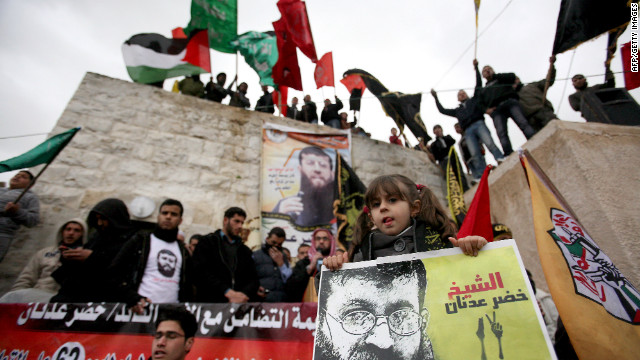By Adom M. Cooper
Impunity Watch Reporter, Middle East
TEHRAN, IRAN–According to a human rights group, a computer programmer from Canada sits on Iran’s death row, facing imminent execution for the actions of another person. Actions which he had no control over.

Saeed Malekpour, age 36, is a Toronto resident who wrote a program to upload photos to the Internet. According to Amnesty International, the action of writing the program could cost Malekpour his life. Authorities inside the Islamic Republic of Iran claimed that his program was used by someone else to upload pornography to the Internet. Malekpour was charged with “insulting and desecrating Islam.”
Malekpour, now awaiting execution in Iran’s Evin Prison, was arrested in 2008 while visiting his dying father. A Canadian permanent resident, with the protection under the Charter of Rights, Malekpour was awaiting citizenship and completely uninvolved in Iranian politics. He was convicted in a short trial and was sentenced to death in October 2011. The charges focused on his contract work as a web designer in Canada and expanded to accuse him of running the “biggest anti-religion pornographic Farsi network.”
Malekpour and his family, including his wife Fatima Eftekhari, have denied that he had any knowledge of such network and stated that he only created image-sharing software that could have been used to upload such images without his direct knowledge.
Iran’s Supreme Court confirmed the sentence on 17 January 2012 and Malekpour’s legal team has been unsuccessful in ascertaining the whereabouts of his court files since Tuesday 14 February 2012. According to Amnesty International, they fear that this could be an indicator that an executioner could carry out the sentence soon. A court official suggested to the lawyers that the file has been sent to the Office for the Implementation of Sentences.
Drewery Dyke of Amnesty International released a statement containing the following concerning Malekpour and Iran’s handling of the situation.
“He is alleged to have created ‘pornographic’ Internet sites and is accused of ‘insulting the sanctity of Islam’ for which he was charged with ‘spreading corruption on Earth,’ a vaguely worded charge which attracted the death penalty in Iran. The use of vaguely worded charges is not new in Iran, but the allegation that these were carried out on the Internet is. It is an unwelcome addition to the catalogue of ways in which Iran finds it can execute its own citizens.”
According to Hadi Ghaemi, the executive director of the International Campaign for Human Rights in Iran, Malekpour sent a letter from prison, detailing beatings and other mistreatment at the hands of Iranian prison officials to obtain a confession. Part of the letter displays the following text.
“A large portion of my confession was extracted under pressure, physical and psychological torture, threats to myself and my family, and false promises of immediate release upon giving a false confession to whatever the interrogators dictated.”
Members of Canada’s government and its parliament issued strong protests on Thursday 16 February 2012 when the news broke that Malekpour’s case has been transferred to the Iranian court that schedules executions. Foreign Minister John Baird’s spokesperson Joseph Lavoie offered these words in a statement concerning the situation.
“Canada condemns Iran’s reported decision to execute Mr. Malekpour. We hold Iran accountable for his treatment and well-being.”
The House of Commons unianimously backed a motion by Tory MP Costas Menagkis voicing parliament’s “deep concern for the safety of Iranian citizen Saeed Malekpour.” The motion holds Iran accountable and asks it to “reverse its current course, meet its international human rights obligation and release prisoners such as Saeed Malekpour and others who have failed to receive fair and transparent legal treatment.”
In addition, Senator Linda Frum shared these words concerning Malekpour’s predicament.
“I was deeply distressed to learn that the judicial murder of Saeed Malekpour appears to be proceeding. I know I speak for all my colleagues in the Senate of Canada when I say that this is lethal abuse of law has the attention of the government, the citizens of this country, and freedom-loving people everywhere.”
Malekpour’s situation appears to be a test run of sorts for the Iran fledging cyber crimes crackdown on the Internet. Within days of his arrival in Tehran, he was seized on the street, blindfolded, beaten and thrown in Evin Prison on charges that he could scarcely comprehend.
Iran’s Revolutionary Guard Corps was ready for Malekpour, the ideal target. He is an expatriate and a computer expert, suspected of spreading sedition from the West to Iran. And even further, suspecting of aiding and abetting young Iranian dissidents. A potential enemy of the state would could become the poster child to fuel fear in a seemingly tranquil public that has lost faith in its government’s resolve.
Hadi Ghaemi of the International Campaign for Human Rights in Iran shared these words concerning the motivations of Iran’s Revolutionary Guard Corps.
“At its heart, Malekpour’s conviction is an attempt to stroke fear by suppressing user-generated content and Internet applications that allowed Iranians to interact in cyberspace. The guards made it clear he would an example to others.”
And if Malekpour is executed, his death will certainly serve as an example to others that they can be killed for actions on the Internet that occurred outside their direct control and knowledge.
For more information, please see:
The Hamilton Spectator – Saeed Malekpour: A Canadain on Iran’s Death Row – 19 February 2012
CNN – Execution of Web Programmer in Iran May Be Imminent – 18 February 2012
The Toronto Star – Iran Moves Saeed Malekpour’s Death Sentence Ahead, Prompting Canadain Outrage – 17 February 2012
The Globe & Mail – Free Saeed Malekpour: He Has Done No Wrong – 01 February 2012
AFP – Iran Media Confirms Canada Resident’s Death Sentence – 29 January 2012
Amnesty International – Iran Must Halt Execution of Web Programmer – 19 January 2012
The Guardian – Iran Confirms Death Sentence for ‘Porn Site’ Web Programmer – 18 January 2012



